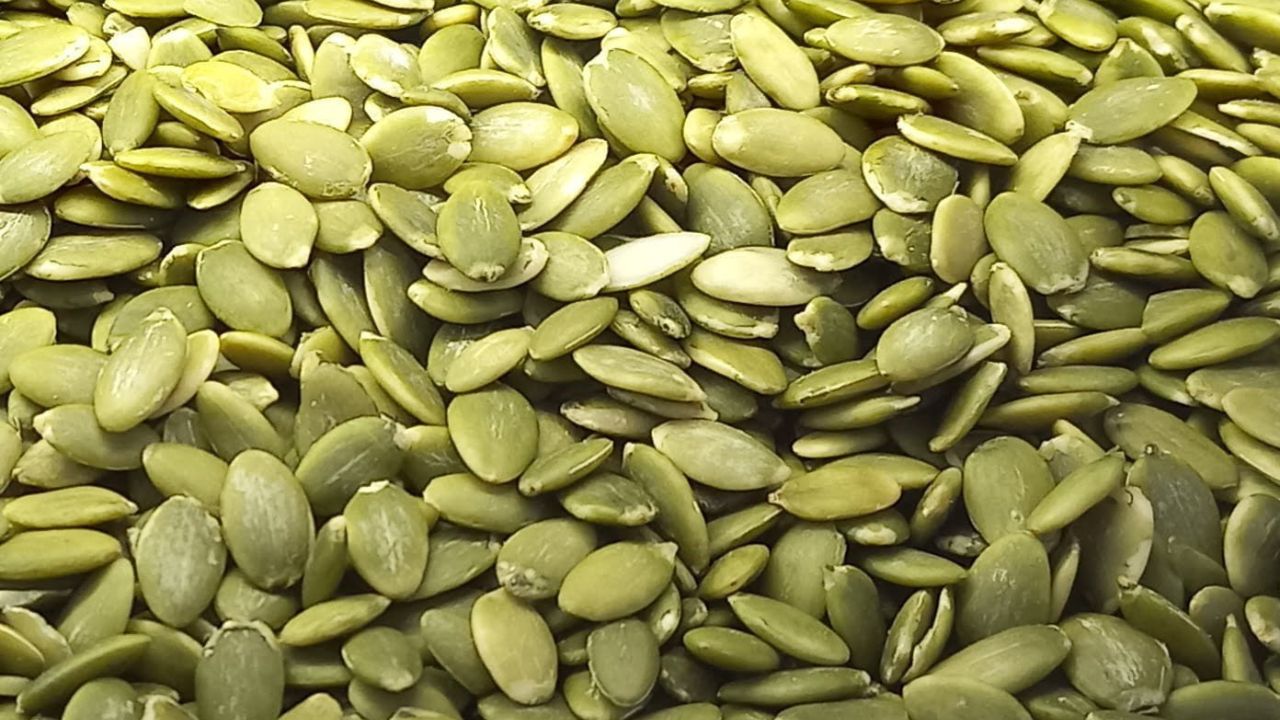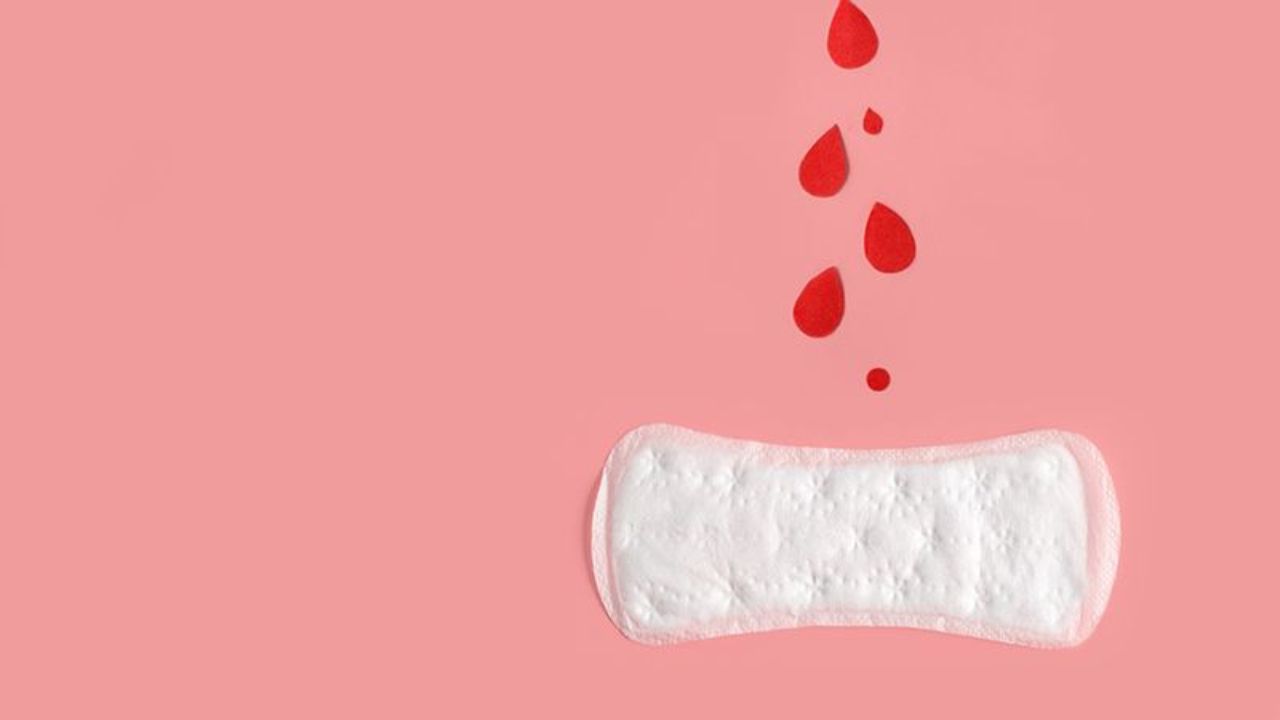Dive into the world of these tiny powerhouses and see how they can transform your wellbeing in a jiffy.
Ever found yourself reaching for a handful of pumpkin seeds during a lazy afternoon or after an invigorating workout? You’re in great company! These little gems, often favoured by health enthusiasts and weight-conscious individuals, are true superfoods. Bursting with an impressive line-up of nutrients – think phosphorus, zinc, iron, potassium, essential amino acids, and bountiful unsaturated fatty acids – pumpkin seeds are a snack you can feel good about.
But that’s not all. These small yet mighty seeds come with an impressive list of health perks, from supporting a strong heart, soothing bone and muscle discomfort, to boosting our skin’s radiance and even playing a role in hair retention.
Eager to know more? Let’s delve deeper!
Getting Acquainted: Pumpkin Seeds
So, What Exactly Are They?
Simply put, they’re the deliciously crunchy seeds tucked inside the pumpkin fruit.
Why Should You Love Them?
Aside from being a tasty treat, pumpkin seeds are believed to guard against certain cancers and inflammatory ailments. They’re also champions for skin vitality, slowing down the skin’s ageing process. Additionally, they play a pivotal role in promoting heart health and safeguarding vital organs like the prostate and kidneys. And, if you’re fretting about thinning locks, these seeds might just be your hair’s new best friend.
Who’s Invited to the Party?
Absolutely everyone! Both young and old can relish their benefits.
Ideal Serving?
Stick to a modest 15 to 30 grams per day.
A Gentle Reminder
While they’re incredibly beneficial, moderation is key. Excessive munching might lead to a bit of an upset tummy. So, savour them, but don’t go overboard!
Why Pumpkin Seeds Deserve a Place in Your Diet
Pumpkin seeds, scientifically known as Cucurbita pepo L., are nature’s treasure troves brimming with fats, proteins, and a remarkable 50% oil content. Ever wondered about the composition of this oil? It boasts a rich blend of fatty acids: palmitic (up to 15%), stearic (up to 8%), oleic (up to 47%), and linoleic (up to 61%).
This places pumpkin seeds in the elite league of nutrient-dense oilseeds, rubbing shoulders with other favourites like sunflower, soybean, safflower, and even watermelon seeds.
But what’s driving their soaring popularity? For starters, they’re becoming a staple in health-conscious circles and are often spotted mingling with a variety of nuts, other seeds, and delectable dried fruits in snack mixes.
One of their standout features is the abundant levels of oleic and linoleic fatty acids. These aren’t just fancy names; they’re champions in possibly reducing heart disease risks. Pumpkin seeds are also like tiny mineral vaults, packed with potassium, magnesium, zinc, manganese, and copper.
But that’s not all! These seeds are a robust source of antioxidants, especially in the form of phytochemicals. These naturally occurring compounds have piqued the interest of scientists, and for good reason. Preliminary studies suggest that these seeds might have potential in battling several cancers, including those of the stomach, breast, lung, and colon.
Curious about the transformative effects of pumpkin seeds on your health? Stay with us as we delve deeper into their benefits, backed by the latest scientific research.
The Healing Touch of Pumpkin Seeds: 5 Remarkable Health Benefits
Pumpkin seeds aren’t just crunchy snacks; they’re a goldmine of health benefits. Brimming with antioxidant, anti-inflammatory, antimicrobial, anti-arthritic, and antidiabetic properties, they are wellness encapsulated in tiny shells. Let’s explore some of the profound ways these seeds could bolster your health:
Potential Anticancer Champions
Long before the age of modern medicine, pumpkin seed extracts were revered in traditional remedies, often being used to address kidney, bladder, and prostate concerns. One of their potent molecules, cucurbitin, has shown promise in curbing the unchecked growth of cancer cells. Furthermore, preliminary studies have witnessed a significant inhibition in the growth of prostate, breast, and colon cancer cells, potentially owing to the presence of phytoestrogens. Lignans and flavonoids, present in these seeds, could play a part in managing and preventing breast and prostate cancers by influencing gene expressions.
Your Skin’s Best Friend
Seeking radiant and youthful skin? Look no further than pumpkin seeds and their derived oil. The vibrant carotenoids, known to counter premature skin ageing by fighting free radicals, are abundant in these seeds. Plus, the vitamins A and C present help supercharge collagen production, a crucial element for wound healing and maintaining supple, wrinkle-free skin. With omega-3 fatty acids and ß-carotene, pumpkin seed oil becomes a formidable foe against inflammation. Incorporating it in your skincare routine, either through scrubs or massages, could address acne, blisters, and other skin inflammations while warding off bacterial and fungal invaders.
Guardians of the Heart
The heart-loving benefits of pumpkin seeds are backed by numerous animal studies. Notably, those on high-fat diets showcased significant cholesterol reductions upon consuming these seeds. Moreover, the pesky LDL (bad cholesterol) saw reductions of around 79%. A fascinating study from Slovakia observed that frequent consumption of pumpkin seeds was linked to lowered risks of cardiovascular diseases, with men (53.06%) edging out women (45.19%) in consumption rates. By ensuring a reduced cholesterol build-up and averting blood vessel hardening, these seeds could be pivotal in preventing heart ailments like strokes and coronary artery diseases.
Protectors of Prostate Health
The humble pumpkin seed holds a protective mantle over the prostate gland. Renowned for storing minerals like zinc, the prostate can greatly benefit from these seeds that are rich in the same. Several studies hint at the seeds’ potential in curtailing prostate enlargement, a common issue stemming from testosterone imbalances. Regular consumption might just be the key to avoiding complications like benign prostatic hyperplasia, ensuring smoother urinary functions and reducing UTI risks.
Combatting Urinary Tract Infections (UTIs)
Men, in particular, can heave a sigh of relief with pumpkin seed oil in their arsenal against urinary disorders. Its efficacy in counteracting prostate enlargement has made it a go-to for managing UTIs. Clinical evidence supports its safety, with doses up to 1000 mg/day not causing adverse effects. Subjects grappling with overactive bladders saw marked improvements in urinary function after consistent dosing over weeks.
Six More Compelling Reasons to Welcome Pumpkin Seeds into Your Diet
Crowning Glories: Boosting Hair Growth
Think of pumpkin seeds as nature’s own hair serum. Rich in omega-3 fatty acids and combined with other essential micronutrients, they have the power to rejuvenate dry and brittle hair. An important component in the hair health equation is zinc, which promotes hair protein production – and guess what? Pumpkin seeds are chock-full of it. In a captivating study spanning twenty-four weeks, men grappling with hair thinning experienced an impressive 40% uptick in hair growth after introducing pumpkin seed oil into their regimen. This might be attributed to phytosterols present in the seeds, which combat enzymes responsible for hair protein breakdown, thereby warding off hair fall.
Diabetes Management’s Natural Allies
Pumpkin seeds emerge as potent warriors in the fight against diabetes. Their repertoire of phytochemicals, including flavonoids and saponins, act as diligent regulators of blood glucose. Further cementing their credibility, these seeds have been observed to shield insulin-producing pancreatic cells from inflammation. In trials involving animals, a diet enriched with flax and pumpkin seeds elevated the activity of antioxidant enzymes. This mechanism mitigates the damaging effects on organs like the kidneys and pancreas in diabetic subjects. Beyond the seeds, even pumpkin leaves and pulp shine with antidiabetic potential, offering complex carbohydrates like pectin, which may harmonise sugar levels.
Guardians Against Cholesterol and Obesity Perils
Unregulated lipid levels can spell trouble, often leading to cardiovascular issues, obesity, or in severe cases, untimely demise. The antidote? Foods like pumpkin seeds that modulate lipid metabolism and accumulation. Laden with beneficial fats, fibre, and antioxidants, they stand shoulder-to-shoulder with seeds like flax and purslane, championing weight management and thwarting cholesterol buildup in the liver. The potent anti-obesity properties of pumpkin seeds can be traced back to constituents like omega-3 fatty acids, vitamin-E derivatives, phytosterols, and ß-carotene. Additionally, their fatty acids – linoleic, linolenic, and oleic – are adept at trimming down blood cholesterol levels while ensuring optimal kidney and liver health, especially in overweight individuals. A caveat, though: while rodent studies offer these insights, human dosages might need adjustments.
Armed with this knowledge, it’s easy to see the allure of these seeds among health aficionados.
And as an added bonus, the delightful nutty flavour of pumpkin seeds makes them an irresistible treat. Whether you’re savouring them roasted or toasted, they promise not just taste but a treasure of health benefits.
Ready to embrace this crunchy delight? Let’s dive into a simple recipe to get you started.
The Skinny on Pumpkin Seeds: Safety and Serving Sizes
Pumpkin seeds, often celebrated for their health benefits, are frequently incorporated into various dishes or enjoyed as snacks. But, like all foods, moderation is key.
-
Side Effects and Safety Concerns
While there’s no comprehensive study highlighting any side effects of pumpkin seeds, a few anecdotal instances suggest excessive consumption might lead to digestive problems like bloating and constipation.
-
Pregnancy and Breastfeeding
Generally, pumpkin seeds are considered safe for pregnant and lactating women. They offer a good source of magnesium, iron, and other nutrients, which can be beneficial during pregnancy. However, there isn’t substantial research to definitively confirm this. Always consult with a healthcare provider or nutritionist when making changes to a pregnancy or breastfeeding diet.
-
Serving Size
The concept of a “safe” serving size isn’t as straightforward with pumpkin seeds since they’re not typically associated with any adverse effects in regular quantities. That said, for adults, a general guideline could be around 1/4 to 1/2 cup (1-2 oz) per day. This quantity provides a good balance of the nutrients present in the seeds without the risk of consuming excessive calories or fat.
-
Preparation Matters
Remember, the way pumpkin seeds are prepared can impact their nutritional value. Roasting them at high temperatures might reduce their nutrient content. It’s best to roast them at a lower temperature (like the previously mentioned 250°F) to maintain their nutritional integrity.
-
Allergies and Interactions
As with any food, there’s a possibility of allergies. If someone has an allergic reaction after consuming pumpkin seeds, it’s essential to consult a healthcare provider immediately.
Spinach Juice: Another Nutrient Powerhouse
Pumpkin seeds aren’t the only superfoods around. Spinach juice packs a nutritional punch, boasting an impressive protein profile and a plethora of essential nutrients. Overflowing with antioxidants and other health-promoting compounds, it’s believed to ward off anaemia, combat rheumatoid arthritis symptoms, regulate body alkalinity, address bleeding gums, and even challenge certain cancerous cells. Besides these internal health boons, spinach juice may also do wonders for your external appearance, promoting radiant skin and lustrous hair. So, while you’re munching on those roasted pumpkin seeds, consider coupling them with a glass of spinach juice to amplify the health benefits.
Frequently Asked Questions about Pumpkin Seeds
- Should pumpkin seeds be soaked?
Yes, soaking pumpkin seeds is a good practice. The thin membrane around pumpkin seeds contains enzyme inhibitors that can be hard to digest for some people. Soaking them for 12-24 hours can help to neutralise these inhibitors, making the seeds easier to digest. Additionally, soaking also helps in the absorption of the nutrients present in the seeds.
- Can you eat pumpkin seeds on an empty stomach?
Yes, you can. Eating pumpkin seeds on an empty stomach might help in detoxifying the body. They’re a good source of healthy fats, protein, and fibre, which can help provide a feeling of satiety and may aid in digestive health. Some believe that consuming seeds and nuts on an empty stomach can maximise nutrient absorption.
- Which is better: raw or roasted pumpkin seeds?
From a nutritional standpoint, raw pumpkin seeds generally retain more of their nutrients because they haven’t been exposed to the high temperatures that come with roasting. Roasting can reduce some of the nutrient content, especially the more heat-sensitive vitamins. However, many people prefer the taste and crunchiness of roasted seeds. If you opt to roast them, consider doing so at a lower temperature for a longer time to help preserve as many nutrients as possible. Also, watch out for added salts or seasonings which can increase the sodium content.






